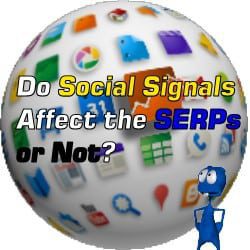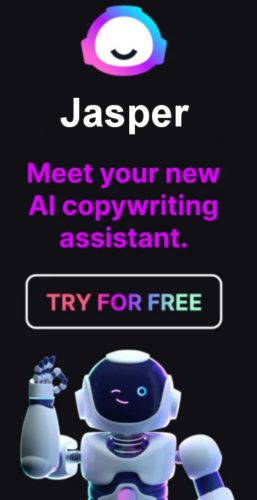There is a lot of contradicting and confusing information out there in regards to the effects of social media affect on SEO and SERP. Most people insist that social media does in fact impact SEO, and that its influence will keep increasing.

Likewise, the insistence that likes and tweets and +1’s influence SERPs and SEO is very common. On the other hand, the adamant denial that social media affects search engine rankings or organic SEO is made by Google itself, along with many other SEO experts. So how do we know what the truth is? Does social media affect SEO or search engine rankings…or not?
The reason, I believe, for the confusion is because the answer is both yes and no.
Why the Answer can be Yes
1. Social media does affect personalized search
This is especially true for Google+, because of the heavy correlation between Google+
profile pages and author rank, but personalized Google searches can include all sorts of
social media channels. While personalized search shouldn’t be disregarded in your SEO
strategy, non-personalized search is still far more prevalent.
2. Hashtag searches
Because hashtags are a social media tool, it’s fairly obvious that search results will be
affected by social media influences. In addition to that, hashtag searches also now
include Google+ posts in the upper right column. This means that while a search
for “Nintendo” will produce Nintendo brand pages first, a search for #Nintendo will
produce Google+ posts that use that hashtag, as well as articles or other sources using a #Nintendo in their content.
3. Author rank/rel-author
If you use Google+’s authorship identifier, rel=”author”, your Google+ profile image
should appear next to your piece on the SERP, as well as a link to see more pieces
written by you. You stand out more on the page, and your Google+ connections may
see your posts higher up in the results because of this.
Why the Answer can be No
1. Social signals (likes, tweets, Google +1’s) do not directly affect SERPs, because they are
not a part of the Google algorithm.
2. While correlation studies seem to show that social activity improves SERPs, it’s not the
actual activity itself, but what happens as a result of that activity. For example, let’s
say an ecig company does a free ecig promotion on Facebook. It gets tons of likes and
comments. That activity does impact its search engine rankings. Rather, because it
garnered a lot of attention on Facebook, more people visited the site, linked backed to
the site, and so on. But the social media activity itself does not directly impact SERPs.
Social media is very important. It’s essential for acquiring visibility, marketing strategies,
customer trust and engagement and building your brand. But it will not directly affect your
SERPs, no matter how many retweets or likes you get. And that’s coming straight from the web spam head of Google.
Are pages from social media sites ranked differently?

About the Author: Adrienne Erin
Adrienne is a freelance writer who loves learning new things about internet and social media marketing. Check out her personal blog, Pongra



I can't say that I agree with all of that. And citing Matt Cutts makes it no more believable as he lies to us all the time as Google's mouthpiece.
I think this whole thing is pretty simple:
Question – Does Google rank your site better with more page views?
Question – Does Google rank you site better with more backlinks?
If you answered "yes" to any of the above then yes, Social Media sharing helps your websites SEO rankings.
…. but I could be wrong 🙂